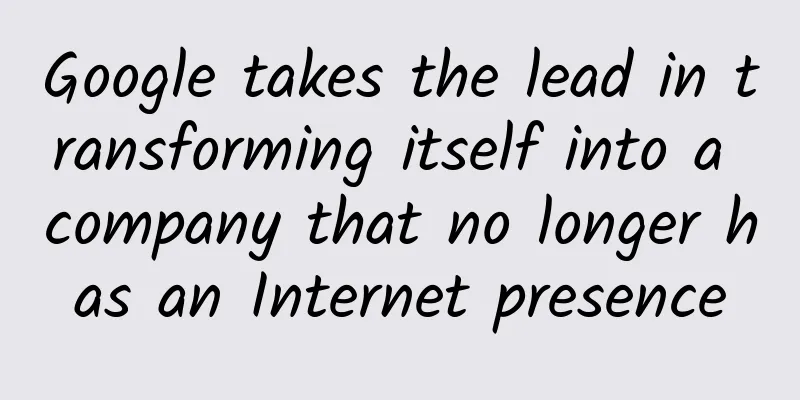Google takes the lead in transforming itself into a company that no longer has an Internet presence

|
Google always does things that seem crazy, like creating a parent company for itself. On the evening of August 10, U.S. time, Google announced that it would create a parent company called Alphabet Inc. Google CEO Page said in an official blog that Alphabet would replace Google as the new listed company, and all Google shares would be automatically converted into Alphabet shares of the same number and rights. Google will become a wholly-owned subsidiary of Alphabet. As a winner of Toutiao's Qingyun Plan and Baijiahao's Bai+ Plan, the 2019 Baidu Digital Author of the Year, the Baijiahao's Most Popular Author in the Technology Field, the 2019 Sogou Technology and Culture Author, and the 2021 Baijiahao Quarterly Influential Creator, he has won many awards, including the 2013 Sohu Best Industry Media Person, the 2015 China New Media Entrepreneurship Competition Beijing Third Place, the 2015 Guangmang Experience Award, the 2015 China New Media Entrepreneurship Competition Finals Third Place, and the 2018 Baidu Dynamic Annual Powerful Celebrity. |
<<: Cognizant: The future of chatbots in insurance
Recommend
King's Counterattack: Use AI to play WeChat Jump Jump, automatically brushing points to break 10,000 points
Recently, the WeChat mini game Jump Jump has beco...
What are the characteristics and trends of advertising for tool apps?
Mobile tool apps are a type of app that started r...
A mushroom expert ate "involution" mushrooms and died of poisoning?
Although you promised me that you would no longer...
A work checklist for self-media people!
It seems easy to create your own media , but it i...
Reviewing the winning works of the 2017 Cannes Lions Creativity Festival, I summarized 5 creative templates
If you ask me which exhibitions advertisers shoul...
QUICK FactSet: Tesla's net profit per vehicle reached 50,000 yuan, ranking first among global automakers
A media outlet studied the profits of the world&#...
How to operate a good community? Share 4 community skills!
Since 2017, communities have been pushed to the f...
Sharing tips on operating Xiaohongshu and becoming popular
As a grass-growing and sharing platform commonly ...
Eat less and live longer. Are there any rules for fasting?
Recently, Brother Rong seems to be particularly f...
"Xiaoyao Town" and "Tongguan Roujiamo" have no right to charge franchise fees! Officially clarified
In the early morning of November 26, the State In...
Huo Wei: Why did the "Plateau Silk Road" accelerate the civilization process of the Qinghai-Tibet Plateau?
The Plateau Silk Road is like a "blood suppl...
Operation and promotion: I spent more than 100,000 yuan, but why is there not even 1 conversion?
I have always put forward a point of view: the es...
10 practical strategies for product promotion and acquisition!
When it comes to product operation , the main tas...
Summary of common questions about placing Toutiao ads?
Toutiao ads are information flow ads, which are r...
What is the reason why viral marketing is so popular and how can operators learn from it?
Recently, has your circle of friends been flooded...









